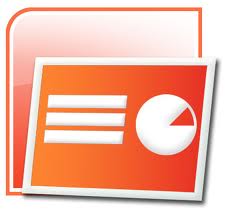Nuclear Chemistry
Having been introduced to the basic structure of atoms and the use of the periodic table, this is an opportune time to introduce basic nuclear chemistry. Nuclear fission, fusion, and decay all primarily involve changes to the composition of the nucleus of the atom, so students will be able to apply what they know about protons, neutrons, and atomic mass.
Nuclear Chemistry Powerpoint Lecture
 |
Purpose: This Powerpoint lecture gives a brief history of the discovery and application of radioactivity, including Becquerel's discovery and Rutherford's gold foil experiment. Students will then learn about both nuclear fusion and fission within the context of the sun, fission nuclear reactors, and nuclear weapons.
Essential Concepts: Nucleus, protons, neutrons, radioactive decay, radioactive fallout, fission, fusion, nuclear energy, nuclear meltdowns, half-life.
Nuclear Chemistry Student Notes Outline
Purpose: This is a fillable notes outline to accompany the nuclear energy Powerpoint. These are helpful to use if you have students who struggle with effective note-taking and either write nothing down at all or try to write everything (and fail to listen to actual lecture).
Essential Concepts: Nucleus, protons, neutrons, radioactive decay, radioactive fallout, fission, fusion, nuclear energy, nuclear meltdowns, half-life.
The Universe - Secrets of the Sun
Purpose: This is a worksheet to accompany the Secrets of the Sun episode of the Universe documentary series. This episode covers the conditions that led to the birth of the sun, the nuclear fusion within that fuels it, sunspots, solar flares, and the predicted eventual death of the sun.
Essential Concepts: Nuclear fusion, radiation, convection, sunspots, solar flares.
Mythbusters - Radiation and Cockroaches Worksheet
Purpose: This episode of Mythbusters tries to answer the question of whether cockroaches could really survive a nuclear disaster or war. Cockroaches, flour beetles, and fruit flies are all exposed to varying levels of radiation and their survival tracked over a period of 30 days.
Essential Concepts: Radioactive decay, radioactive fallout, acute, chronic, alpha particles, beta particles, gamma rays.
Alpha and Beta Decay Worksheet
Purpose: This is a worksheet of radioactive decay practice problems. Students will use the periodic table to predict the alpha and beta decay products of different radioactive elements.
Essential Concepts: Radioactive decay, alpha particles, beta particles.
Nuclear Waste Half-Life Lab
Purpose: One of the biggest challenges facing nuclear energy is the problem of how to deal with the waste. Spent fuel has been accumulating in dry cask storage at the world's nuclear facilities for decades, and no long-term disposal plan has established by the scientific community. In this lab, students will use colored water to simulate the decay of Strontium-90, while doing some calculations to see how long it takes the radioactive isotope to become harmless.
Essential concepts: Nuclear waste, radioactive half-life.
Nuclear Energy Study Guide
Purpose: Once the instruction for the unit is completed, students can complete this study guide to aid in their preparation for a written test. The study guide is divided into two sections: vocabulary and short answer questions. The vocabulary words can be found scattered throughout the different instructional worksheets from this unit. The short answer questions are conceptual and meant to see if the students are able to apply what they've learned in the unit.
